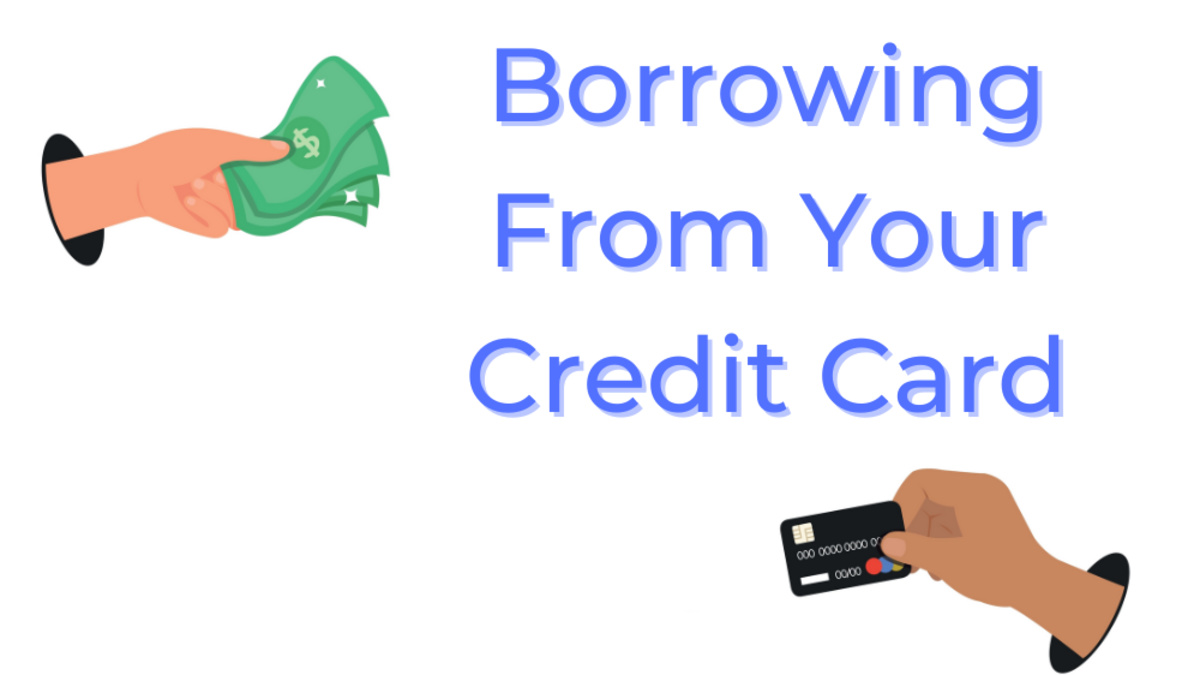Borrowing from Your Credit Card

Joy Wallet is advertiser-supported: we may earn compensation from the products and offers mentioned in this article. However, any expressed opinions are our own and aren't influenced by compensation. To read our full disclosure, click here.
What is a credit card loan?
- Sign up for FREE & complete your profile
- Earn points for taking surveys
- Redeem your points for cash or gift cards
- $55k+ Paid to Survey Junkie members daily
- Complete 3+ surveys a day, earn up to $100/mo.
When to take out a credit card loan
- Emergencies. If you have an emergency expense and don't have any other options for funding it, using a credit card could be a way to get the money you need quickly.
- Short-term cash flow issues. If you're experiencing a temporary cash-flow problem, using your credit card for a short-term loan could help you cover your expenses until your next paycheck.
- Building credit. If you're just building your credit history, using your credit card responsibly and paying off your balances on time can help establish a positive credit history.
- Taking advantage of rewards. If you have a credit card with rewards, such as cashback or points, using your card to make a large purchase or pay a bill could help you earn rewards while borrowing money.
- Lower interest rate than other options. In some cases, the interest rate on a credit card cash advance may be lower than the interest rate on other short-term loans, such as payday loans.
How much money can be borrowed from a credit card loan?
- Sign up for FREE & complete your profile
- Earn points for taking surveys
- Redeem your points for cash or gift cards
- $55k+ Paid to Survey Junkie members daily
- Complete 3+ surveys a day, earn up to $100/mo.
Alternatives to credit card loans
Personal loans
Home equity loans or lines of credit
Borrowing from a retirement account
Borrowing from friends or family
Negotiating with creditors
Pros and cons of credit card loans
- Convenience. Borrowing money through your credit card is usually very quick and easy, and can often be done online or through a mobile app.
- Availability. As long as you have available credit, you can usually borrow money through your credit card at any time without having to apply for a separate loan.
- Flexibility. Credit card loans can be used for a variety of purposes, from paying bills to making large purchases.
- High interest rate. Credit card loans usually have higher interest rates than other loans, making them more expensive in the long run.
- Fees. Credit card loans may also include additional fees, such as cash advance or balance transfer fees, which can add up quickly.
- Risk of debt. Borrowing money through your credit card can be a slippery slope, as it's easy to fall into the trap of carrying a balance and accruing more debt over time.
- Impact on credit score. Taking out a loan through your credit card can also impact your credit score, especially if you carry a high balance or miss payments.
- Sign up for FREE & complete your profile
- Earn points for taking surveys
- Redeem your points for cash or gift cards
- $55k+ Paid to Survey Junkie members daily
- Complete 3+ surveys a day, earn up to $100/mo.
FAQs
The bottom line
Joy Wallet is an independent publisher and comparison service, not an investment advisor, financial advisor, loan broker, insurance producer, or insurance broker. Its articles, interactive tools and other content are provided to you for free, as self-help tools and for informational purposes only. They are not intended to provide investment advice. Joy Wallet does not and cannot guarantee the accuracy or applicability of any information in regard to your individual circumstances. We encourage you to seek personalized advice from qualified professionals regarding specific investment issues. Featured estimates are based on past market performance, and past performance is not a guarantee of future performance.
Our site doesn’t feature every company or financial product available on the market. We are compensated by our partners, which may influence which products we review and write about (and where those products appear on our site), but it in no way affects our recommendations or advice. Our editorials are grounded on independent research. Our partners cannot pay us to guarantee favorable reviews of their products or services.
We value your privacy. We work with trusted partners to provide relevant advertising based on information about your use of Joy Wallet’s and third-party websites and applications. This includes, but is not limited to, sharing information about your web browsing activities with Meta (Facebook) and Google. All of the web browsing information that is shared is anonymized. To learn more, click on our Privacy Policy link.
Images appearing across JoyWallet are courtesy of shutterstock.com.








